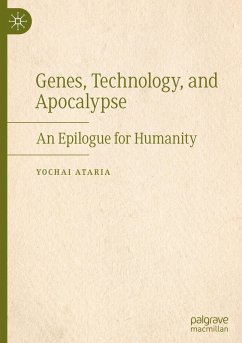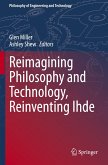This book offers a critique of a certain contemporary discourse in popular science that consists of (1) identifying the origins and therefore essential nature of Homo Sapiens; and (2) identifying the nature of technology. The author's critique is that this double gesture generates a deterministic worldview - man is evil and technology has its own necessity - that operates to exonerate humanity from responsibility to the horrors of the 20th century, epitomized in Auschwitz and Hiroshima, for example. The author situates this operation within what he identifies as an "apocalyptical-eschatological state of mind". Yochai Ataria explains that the dynamics of technology and the quest for the first human are the two central vectors shaping both scientific and popular discourse today, highlighting the importance of understanding the deep connection between the two.
Bitte wählen Sie Ihr Anliegen aus.
Rechnungen
Retourenschein anfordern
Bestellstatus
Storno








